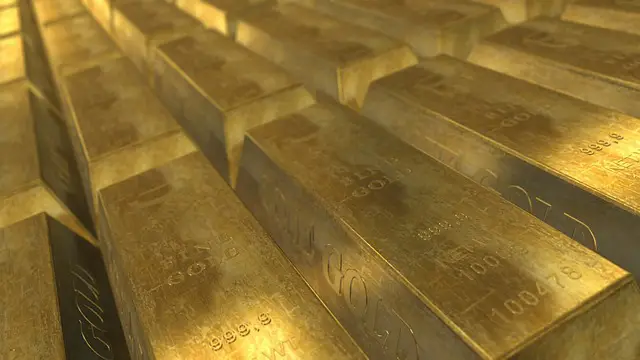What is a Commodity?

What is a Commodity? A commodity is a basic good or raw material that is used to produce goods and services and is traded in large quantities in financial and commodity markets. Commodities are typically standardized, fungible (interchangeable), and can be transported and stored with ease.
Examples of commodities include agricultural products like wheat and corn, precious metals like gold and silver, energy products like crude oil and natural gas, and industrial metals like copper and aluminum. The price of commodities is determined by market supply and demand dynamics and can be influenced by various factors such as production levels, geopolitical events, and changes in the global economy.
Types of Commodities
There are several types of commodities, including:
- Agricultural Commodities: These include crops such as wheat, corn, soybeans, and rice, as well as livestock products such as cattle, pork, and poultry.
- Energy Commodities: These include crude oil, natural gas, gasoline, and heating oil.
- Metals Commodities: These include precious metals like gold, silver, and platinum, as well as industrial metals like copper, aluminum, and iron.
- Livestock and Meat Commodities: These include cattle, hogs, and poultry.
- Soft Commodities: These include coffee, cocoa, sugar, and cotton.
- Financial Commodities: These include currencies, bonds, and stocks.
- Cryptocurrencies: These are digital currencies such as Bitcoin and Ethereum, that operate on decentralized blockchain technology.
Commodities can be further categorized into different sub-classes, and the specific types of commodities traded can vary between markets and exchanges.
What are the Characteristics of Commodities?
Commodity markets have some distinct characteristics that make them different from other types of investments. They are characterized by several key features, including:
- Standardization: Commodities are typically standardized products that are interchangeable with one another. For example, a barrel of crude oil is typically standardized to 42 gallons, and the quality and specification of the oil is usually defined by industry standards.
- Fungibility: Commodities are fungible, meaning that they are interchangeable and can be easily substituted with one another. For example, one barrel of crude oil is equivalent to another barrel of crude oil of the same specification and quality.
- Global demand and supply: Commodity markets are typically global in nature, with demand and supply dynamics influenced by events and conditions in different regions around the world.
- Price volatility: Commodity prices are often subject to significant volatility, as they can be influenced by various factors such as weather patterns, geopolitical events, changes in the global economy, and supply chain disruptions.
- Seasonal fluctuations: Some commodity markets are subject to seasonal fluctuations, such as the agricultural commodities market, where production and demand levels can vary depending on the time of year.
- Physical delivery: Many commodity markets involve physical delivery of the commodity, where the buyer takes possession of the physical product. In some cases, financial derivatives such as futures and options contracts are used to trade commodities without taking physical delivery.
How Do You Trade Commodities?
There are a variety of ways to trade commodities. The most common way is through contracts for difference (CFDs). With CFDs, traders can speculate on the price movements of commodities without having to physically own the underlying asset. Contracts for difference allow leverage, meaning that traders can invest more money than they originally had and increase their potential returns.
Below is a list of other ways to trade Commodities.
- Futures Contracts: A futures contract is an agreement to buy or sell a specific commodity at a predetermined price on a specific date in the future. Futures contracts are traded on commodity exchanges, such as the Chicago Mercantile Exchange (CME), and are used by traders to hedge against price fluctuations or to speculate on the price movement of a commodity.
- Options Contracts: An options contract gives the buyer the right, but not the obligation, to buy or sell a specific commodity at a predetermined price on or before a specific date. Options contracts are also traded on commodity exchanges and provide traders with more flexibility in their trading strategies.
- Physical Delivery: Commodities can also be traded through physical delivery, where the buyer takes possession of the physical product. Physical delivery is commonly used in the agriculture and energy sectors, where the commodity is required for production or consumption.
- Exchange-Traded Funds (ETFs): Commodities can also be traded through ETFs, which are investment vehicles that track the price movement of a basket of commodities. ETFs provide investors with exposure to the commodity market without the need for physical delivery.
- Stocks of Companies in the Commodity Industry: Investors can also gain exposure to the commodity market by buying stocks of companies involved in the production, processing, or distribution of commodities.
What are the Risks in Trading Commodities?
There are several Major risks in investing in commodities and they are:
- Price Volatility: Commodity prices can be subject to significant volatility, which can result in large losses for investors if they are not prepared. This volatility is driven by factors such as changes in global supply and demand, weather patterns, geopolitical events, and economic conditions.
- Market Liquidity: Some commodity markets can be illiquid, meaning it can be difficult to buy or sell a large quantity of commodities without significantly affecting the price. This can make it difficult for investors to enter or exit positions, and can also increase the cost of trading.
- Counterparty Risk: In some cases, the risk of default by a counterparty in a commodity transaction, such as a futures contract, can result in significant losses for investors. This risk is particularly relevant in over-the-counter (OTC) transactions, where there is no central clearinghouse to guarantee the trade.
- Supply Chain Disruptions: Commodity markets can be vulnerable to supply chain disruptions, such as natural disasters, geopolitical events, and labor strikes, which can result in a temporary imbalance in supply and demand and cause significant price volatility.
- Currency Risk: For investors trading commodities denominated in a foreign currency, currency fluctuations can result in gains or losses on the investment, independent of movements in the commodity price.
- Regulatory Risk: Changes in regulations and government policies can have a significant impact on commodity markets, including restrictions on the production, transportation, and export of certain commodities.
In summary, investing in commodities involves significant risks, and it’s important for investors to have a thorough understanding of these risks before making any investment decisions. This may include diversifying their portfolio, using financial derivatives to hedge against price fluctuations, and working with a financial advisor to ensure that their investment strategy aligns with their risk tolerance and investment objectives.
Where Can Commodities Be Traded?
Commodities can be traded on various exchanges and over-the-counter (OTC) markets. Some of the most popular exchanges for trading commodities include:
- Chicago Mercantile Exchange (CME Group): The CME Group is the world’s largest futures exchange, offering futures and options on futures contracts for a wide range of commodities, including agricultural, energy, financial, and metals products.
- New York Mercantile Exchange (NYMEX): The NYMEX, which is now part of the CME Group, is a leading exchange for trading energy and metal futures and options contracts.
- Intercontinental Exchange (ICE): The Intercontinental Exchange is a global exchange that operates futures and options markets for a wide range of commodities, including energy, agricultural, and financial products.
- London Metal Exchange (LME): The London Metal Exchange is the world’s largest market for trading industrial metals, including aluminum, copper, lead, nickel, tin, and zinc. The LME operates a futures and options market for these commodities.
- Multi Commodity Exchange of India Limited (MCX): MCX is India’s largest commodities exchange, offering futures and options contracts on a range of commodities, including bullion, energy, agriculture, and base metals.
- Tokyo Commodity Exchange (TOCOM): The TOCOM is Japan’s largest commodities exchange, offering futures and options contracts on a range of commodities, including energy, precious metals, and agricultural products.
- Euronext: Euronext is a pan-European exchange that operates futures markets for a wide range of commodities, including energy, agricultural, and financial products.
These are just a few examples of the many exchanges that offer commodity trading opportunities. It’s important to carefully research each exchange and the products it offers to determine which is the best fit for your investment objectives and risk tolerance.
Things to Consider Before Trading Commodities
In Summary, before getting involved in commodities trading, it’s important to consider a few key things. First, consider your risk tolerance; this is the amount of risk that you are willing to take on given the potential returns on your investments. Next, learn about common trends in commodities trading; prices tend to move together within a certain range so understanding these movements can help make better investment decisions. Finally, educate yourself on any fees or costs associated with trading which include broker fees and spreads as well as exchange fees.

